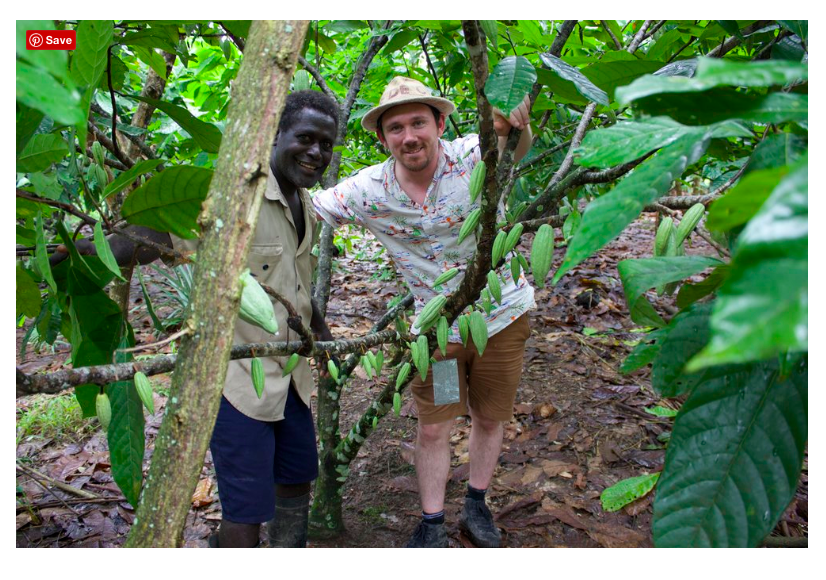




Keep this story going! Share below!
The Fair-trade business model certifies the suppliers (farmers) to follow strict guidelines in the farming practices and Wellington Chocolate Factory is liable to compensate the farmers with a premium price above what is paid in the conventional market. The company makes sure the product is sustainably healthy for human consumption. It is also rewarding to the customers and the business owners as it has positive impact on the livelihood of the people and maintains sustainability to the environment (G. Davidson, personal communication, 20th September 2019)
Wellington Chocolate Factory operates a Fairtrade business model that manufactures single source cocoa beans to chocolate bars. The chocolate bars are of high quality compared with the confectionary chocolate products as it uses seventy percent (70%) raw cocoa and thirty percent (30%) sugar. It also utilizes the artisan methods of “18th century to roast, crack, winnow, conch and temper the beans to produce their powerful product” (Potvin, 2016). He states that in creating a unique business model by keeping the traditional method of manufacturing and involvement in ethical farming practices, it gives a true satisfaction of business operation in harmony with the environment, social and governance aspects (G. Davidson, personal communication, 3rd September 2019)

The innovation started in Melbourne thirteen (13) years ago where the founder/shareholder Mr Gabe Davidson used to work with coffee shops where he delivered coffee to its target customers. This enabled him to have a sense of business responsibility by caring towards its suppliers and customers. He also refers to a quote from his grandmother who stated to stick to the knitting and avoid distracted by the shiny things, focus on one thing and do it well. It drives him to concentrate on the consumers so that value is created that would form the competitive advantage of the firm. He states that today’s millennials are more concerned with ethical business and there is opportunity for business in the longer run (G. Davidson, personal communication, 3rd September 2019).
The Wellington Chocolate Factory involvement in the fair-trade business has great impact on the livelihood of the people and the environment. The premium price paid for the cocoa beans alleviates poverty and addresses food security, the organic farming protects the eco system and human beings consume organic chocolate products. There is also community support towards this innovation as stakeholders feel that it would transform the livelihoods of the disadvantaged community (Potvin, 2016). It is a win win situation where all the stakeholders benefit out of the fair-trade arrangements.
It is realised that as customers become aware of the underlying principles of ethical business, it creates demand for its products and creates positive value and image of the company to compete in the market. The business also benefits from high calibre staff who intend to stay with the company. The company envisions that there is potential opportunity in the near future as the millennials are becoming aware of the importance of ethical sustainable business models (G. Davidson, personal communication, 3rd & 20th September 2019).
The premium price paid to the farmers by Wellington Chocolate Factory creates wealth that supports the livelihood in the isolated regions. On the other hand, the farmers are held responsible to practice organic and ethical farming methods that protects the ecosystem in the environment and avoid the use of child labour that has been evident in the cocoa farming industry (G. Davidson, personal communication, 3rd & 20th September 2019)
The innovation covers a total of seven (7) sustainable development goals that empowers the people in the rural areas to have income to address poverty and have access to food for good health & well-being, creates employment opportunities for both genders that leads to economic growth, and the practices protect the ecosystem that improves and maintains life on land (FFBB Implementation guide).
Get stories of positive business innovations from around the world delivered right to your inbox.
Gabe Davidson, Founder/Director


Wellington Chocolate Factory (WCF) was established in 2013 by the founders, Gabe Davidson and Rochelle Harrison in Wellington, NZ as a small to medium enterprise that embarked on a fair-trade business model (Jay, 2017). The company sources cocoa beans from different parts of the world and manufactures a high-quality chocolate product. It is unique as it produces single origin cocoa beans to chocolate bars and was the first company to start such business in New Zealand. It employs about twenty staff and growing at a gradual rate as a new business segment. The business is distinctive as it enables the players in the value chain to be responsible for their business activities according to the rules that certifies the business arrangement (G. Davidson, personal communication, 20th September 2019)